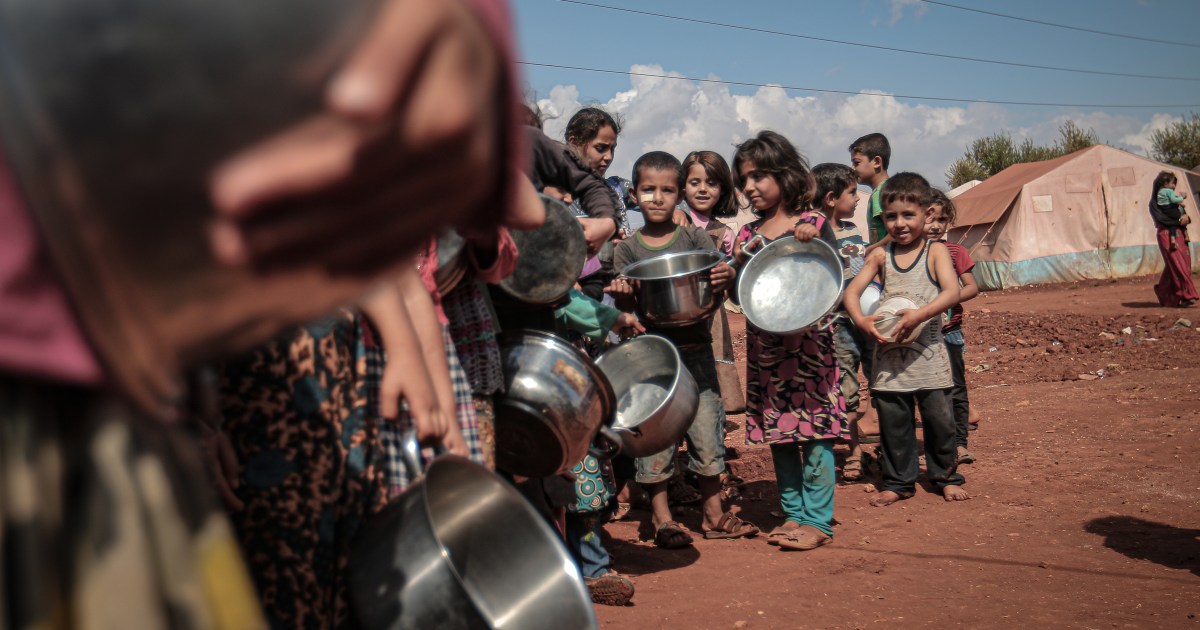Russia and China have used their veto power against a draft resolution extending the UN's international mandate to bring aid into Syria without regime permission through two border ports with Turkey, for the second time in 4 days.
The draft resolution, sponsored by Belgium and Germany, won approval from 13 of the 15 council members, and Russia and China opposed it by using the veto.
In return, Russia submitted a revised draft resolution that allows aid to enter through only one port and extends the mechanism for a year instead of 6 months, and also includes criticism of the economic sanctions imposed on the Syrian regime.
For his part, Mark Cutts, the regional coordinator for humanitarian affairs in Syria, said that many Syrians depend on the crossings for their survival.
In statements to Al Jazeera from Gaziantep, the UN official appealed to the Security Council to take into account the humanitarian needs of the Syrians when discussing extending the mandate to enter aid to the Syrians.
A distortion of facts
For its part, the Russian Foreign Ministry considered the statements of US Secretary of State Mike Pompeo regarding Russia's vote in the Security Council on humanitarian aid to Syria, in an attempt to distort the facts in order to achieve narrow political interests.
The Russian Foreign Ministry statement expressed Moscow's disappointment at the way Pompeo spoke about Russia, and said that Moscow does not oppose extending the border crossing mechanism, but considers it necessary to bring it in line with the situation on the ground, especially in Idlib, to avoid incidents that prevent the delivery of humanitarian aid through Line of contact.
The failure of the members of the Security Council to extend this aid mechanism means that the border gates of Bab al-Hawa and Bab al-Salam crossings on the Turkish border are closed to a flow of humanitarian aid to Syria.
The United Nations says millions of Syrian civilians in the northwest of the country depend on humanitarian aid entering through Turkey, which the world body has described as a "lifeline."
It is noteworthy that the Security Council had authorized for the first time the process of entering aid to Syria across the border 6 years ago, which also included the possibility of aid reaching Jordan and Iraq, and those crossings were cut in January due to the objections of Russia and China.
The issuance of UN Security Council resolutions requires the approval of at least 9 of the council members, provided that none of the five permanent members, Russia, China, the United States, France and Britain, object to it.

